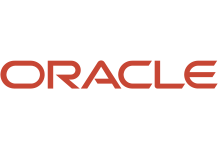- 087 941 5764
- impactful@lrmg.co.za


In this three-day instructor led course you will learn to handle complex data. You learn about collections, which enable you to work with a logical group of homogenous data.
You will also learn to manage large objects and JSON data in the database. Apart from handling complex data, you will learn how to interface database with other programming languages such as C and Java. Further, you will be introduced to utilities such as PL/ Scope and hierarchical profiler to analyze, trace, and profile PL/ SQL code.
These functions help you in improving the performance of the application. In addition, you will be introduced to various security mechanisms that can be used to secure applications.
Our courses have flexible delivery options:
This course is intended for:
Application Developers and Database Administrators
Upon completion, students will be able to:
Need additional information?
We are here to support your growth every step of the way
Get in touch
In this three-day instructor led course you will learn to handle complex data. You learn about collections, which enable you to work with a logical group of homogenous data.
You will also learn to manage large objects and JSON data in the database. Apart from handling complex data, you will learn how to interface database with other programming languages such as C and Java. Further, you will be introduced to utilities such as PL/ Scope and hierarchical profiler to analyze, trace, and profile PL/ SQL code.
These functions help you in improving the performance of the application. In addition, you will be introduced to various security mechanisms that can be used to secure applications.
Our courses have flexible delivery options:
This course is intended for:
Application Developers and Database Administrators
Upon completion, students will be able to:
Certified global best practices in the new technologies…




Please complete the form with your information and one of our experts will get back to you soon.

Get in touch
Email: impactful@lrmg.co.za
Tel: +27 87 941 5764